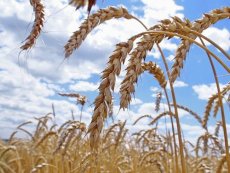Scientists know how to reduce the amount of toxins in plant products
Last reviewed: 23.04.2024

All iLive content is medically reviewed or fact checked to ensure as much factual accuracy as possible.
We have strict sourcing guidelines and only link to reputable media sites, academic research institutions and, whenever possible, medically peer reviewed studies. Note that the numbers in parentheses ([1], [2], etc.) are clickable links to these studies.
If you feel that any of our content is inaccurate, out-of-date, or otherwise questionable, please select it and press Ctrl + Enter.

Every year there is an increasing amount of information about environmental pollution, which entails a deterioration in the health of the population.
First of all, it concerns toxins, which pose a danger to human health. This article will deal with cadmium (Cd).
In the body, this substance usually gets through plant foods, such as grains and vegetables.
Thanks to a new research of scientists published in the journal Trends in Plant Science, there are proposed ways that can help reduce the amount of cadmium in the food we consume every day.
"Cadmium is one of the most toxic heavy metals, it belongs to the second class of danger of" highly hazardous substances ". This toxin settles in the soil and, the more developed the industry in the country, the greater its concentration. Most of this substance accumulates in the kidneys and liver, - says Dr. Stefan Clemens, head of the Department of Plant Physiology at the University of Bayreuth, Germany. - High doses of cadmium can lead to kidney dysfunction, osteoporosis, cancer and cardiovascular diseases. Absolutely safe doses of this toxin do not exist, so you need to try to reduce its use to a minimum. The most common ways of penetrating cadmium into the body are through plant products that "pull" the toxin out of the soil. We need to know more about the content of this element in different types of food. Fortunately, scientists around the world are doing a good job in this direction. "
According to experts, earlier they managed to understand why one rice plant can accumulate more cadmium than another. These data can be used to select improved plants and cultivate new varieties that will retain their useful properties, but will not accumulate harmful substances. In addition to rice, scientists pay attention to other crops such as wheat and potatoes.
The authors note that their knowledge is not widely used, but such an opportunity exists. In addition, experts have discovered genes that can be used as biomarkers to select a particular variety for breeding.
"Of course, it would be best to just get rid of this poisonous substance permanently, however, to achieve this result, you need to spend a very long time, so for now we need alternative solutions to this problem," concluded Dr. Clemens.

 [
[